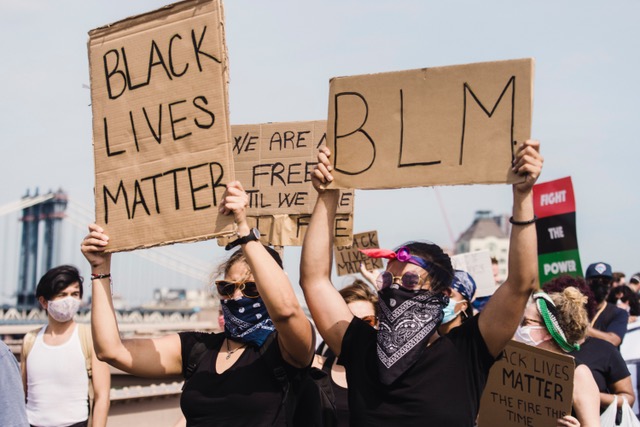As the Black Lives Matter movement and the calls to end systemic racism permeate our country, organizations need to examine where they put their time, energy and money.
I t’s all about organizational values.
t’s all about organizational values.
Your brand is reflected in how your organization lives its values – whether you are a small business, a large corporation or a non-profit organization.
According to an article published in the Los Angeles Times June 10, research from public relations consulting firm Edelman says some 60 percent of Americans would now boycott or buy from a brand based on its response to the killing of George Floyd.
Your employees, customers, clients, donors and the community around you are looking to see where you will fall on the side of history. Do you uphold the status quo or are you working to create innovative and meaningful contributions to create a more just and equitable society?
Are you a part of creating meaningful change for Black lives or going forward with business as usual?
From the health care arena
Health disparities among minority populations is not a new topic. For decades, medical experts have cited higher incidences and poorer outcomes among minorities for cancer, heart disease and other health concerns. Many in the medical field have advocated for public education on wellness and disease prevention, but not enough has been done to create meaningful change.
For example, it’s difficult for a socio-economically depressed, mostly-minority neighborhood to embrace the wisdom of eating healthy when fresh produce is nowhere to be found in their area. The situation is known as a food desert. The creation of affordable farmers markets in low-income, predominantly Black neighborhoods would be an example of activism to bring about meaningful change in the health of such communities.
A health-related non-profit organization that provides low-cost wellness visits and annual medical checkups to low-income neighborhoods is good.
But what if the service is not well-utilized because of the time, money and effort required to travel to where that service is available? Not so good.
If the non-profit could begin allocating funds to ease the burden of transportation, that would be an example of activism to create meaningful change. Even better, activists might find new locations for those services in the neighborhoods served.
Activism works to remove barriers that keep people from having equal access to food, shelter, employment, education and healthcare.
Our organizations need to look deeper. Even where we think we are doing good work to address community needs, we need to understand the underlying issues and barriers to meaningful social change. Then we need to act.
The Activ Consulting Group wants to know how your organization is taking action to create meaningful change. Please email us at [email protected]
